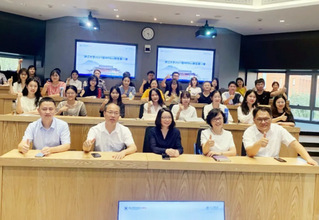时间:2025年4月28日(周一)10:00
地点:浙大管院A423会议室
主题:Auditors’ (Non-)Responses to Public Warnings of Audit Risk: Evidence from Short-Selling Campaigns
主讲人:赵武阳长聘副教授,加拿大麦吉尔大学
主持人:邵帅副教授,yl23411永利
主持人简介:

Wuyang Zhao is an associate professor (with tenure) in Accounting at the McGill University in Montreal, Canada. Before he returned to Canada in the summer of 2024, he was an assistant professor at the University of Texas at Austin for seven years after he received his PhD from University of Toronto in 2017. Prior to studying in Canada, he received his Bachelor and PhD degrees at Fudan University. He is primarily interested in the roles of short-sellers and financial analysts in capital markets, particularly on issues that are relevant to practice. His research has been published on top accounting journals such as Journal of Accounting and Economics, Journal of Accounting Research, Management Science and Review of Accounting Studies, and quoted by mainstream media such as New York Times, Bloomberg, and Reuters. He also reviews articles for top academic journals such as Management Science, The Accounting Review, and Contemporary Accounting Research. He also has experience acting as an expert witness for litigations involving short sellers and hedge funds.
摘要:
Using a novel setting, we examine auditors’ responses to public warnings of audit risk and whether their non-responses are associated with competence or independence. Specifically, we focus on 243 short-selling campaigns from 2006 to 2020 in which short sellers make public, credible allegations of audit-related issues against listed companies. 48.3% of those companies’ auditors do not take any observable actions in terms of raising audit fees substantially, terminating the engagement, issuing going concern opinions (GCO), or reporting internal control weaknesses (ICW) in the year after the short sellers’ allegations. Further examining why auditors do not respond, we find that auditors’ non-responses are more likely for less independent auditors (consistent with lack of independence) and for more competent auditors (inconsistent with lack of competence). Additional analyses show that the litigation and reputation costs of auditors’ inactions are minimal, further reducing auditors’ incentives for responses. Overall, our evidence indicates that lack of independence explains auditors’ reticence in responding to public warnings of audit risk.





